FAQs - Filing Requirements
What are the tax implications if I own a foreign rental property?
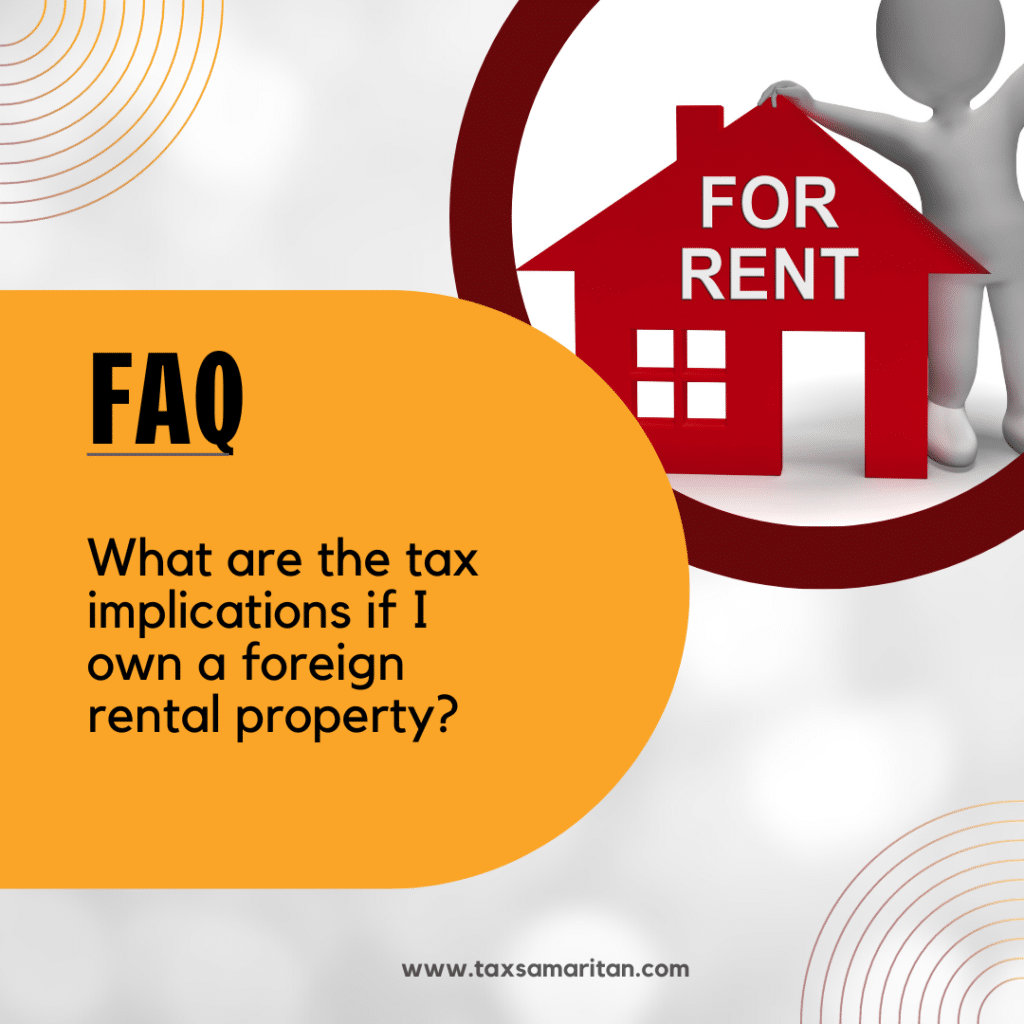
In general, the reporting requirements for foreign rental properties are the same as domestic rental properties if owned by a U.S. citizen or green card holder. You must include Schedule E with your tax return and report all rental income received during the year. You can take deductions for many expenses related to the property, such as mortgage interest, repairs, depreciation, insurance, and management or association fees. If you paid foreign taxes on the income generated from your rental property, you may be able to utilize the Foreign Tax Credit. Rental income is generally considered passive income and cannot be excluded under the Foreign Earned Income Exclusion unless you are actively in business as a real estate professional.
What are my filing requirements if I run my own business overseas?
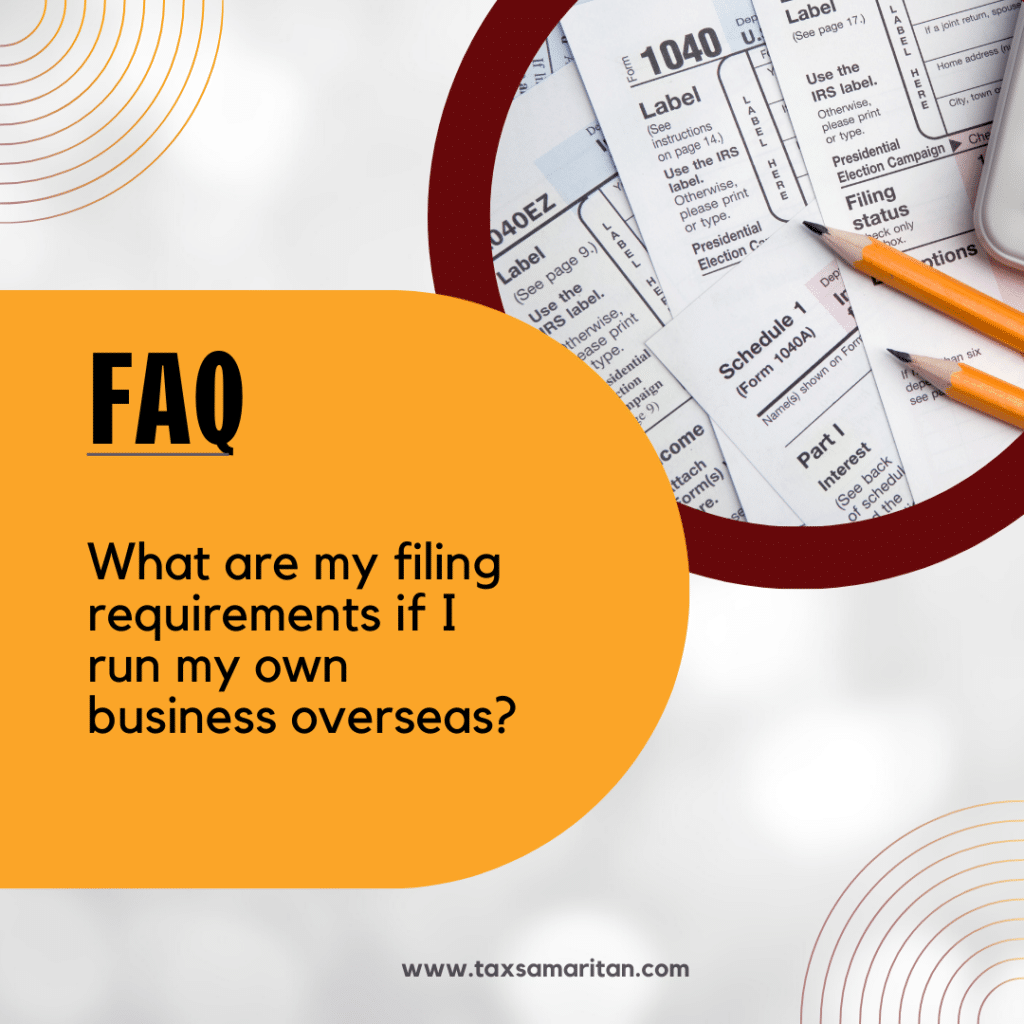
If you own your business abroad, the structure of your company will impact your filing requirements. Factors that may have an effect on your obligations include:
- The structure of the company
- Where the company was established
- The number of shareholders
If you own a sole proprietorship or a single-member U.S. LLC, the IRS won’t consider the company a separate entity for tax purposes, and you will be able to report your profits and losses directly on the Schedule C of your individual tax return. However, if you have a U.S. partnership or LLC that elects to be treated as a partnership, the company needs to file its own Form 1065 U.S. Return of Partnership Income. You will also need to file K-1s for each of your members.
If you have an LLC that you have elected to treat as a corporation, the IRS considers your company to be its own entity, and it will need to file its own return. Alternatively, if you qualify, you can allow your LLC to claim S Corporation status and pass on income to its shareholders. To claim S Corporation status, your company must have only one class of stock, no more than 100 shareholders and no ineligible shareholders.
As an entrepreneur or business owner working abroad, your federal income tax return isn’t the only form you may need to file to meet your obligations in the United States. Here are some of the other forms you may need to file each year.
Form 8858 – Information Return of U.S. Persons With Respect to Foreign Disregarded Entities
If you own shares in foreign entities that are not considered entities under United States law, you must file this form along with your individual income tax return every year.
Form 5471 – Information Return of U.S. Persons With Respect to Certain Foreign Corporations
If you own more than 10 percent of a foreign corporation’s stock, you must file Form 5471 each year when you file your income tax return.
Form 8832 – Entity Classification Election
If you own a foreign LLC, you need to file Form 8832 in order to treat your company as a sole proprietorship or partnership. If you don’t file this form, the IRS will consider the company a foreign corporation, which leads to more reporting requirements.
Form 3520 – Annual Return to Report Transactions With Foreign Trusts and Receipt of Certain Foreign Gifts
If you receive a foreign gift, or if you make a transfer to a foreign trust, you must file Form 3520 within 90 days. This is an informational form.
What are the U.S. filing requirements?
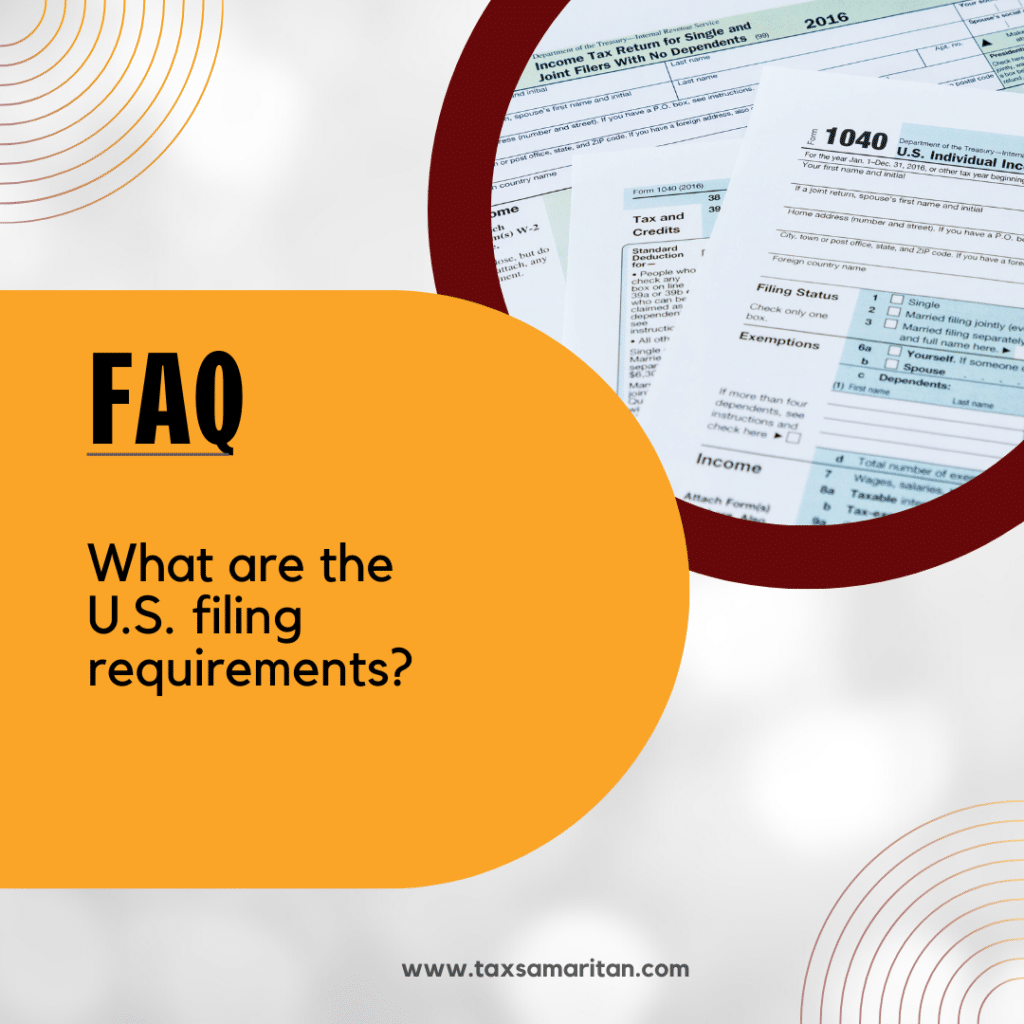
General filing requirements for most taxpayers can be found here: https://www.irs.gov/pub/irs-pdf/p501.pdf
What is the due date of my individual tax return?
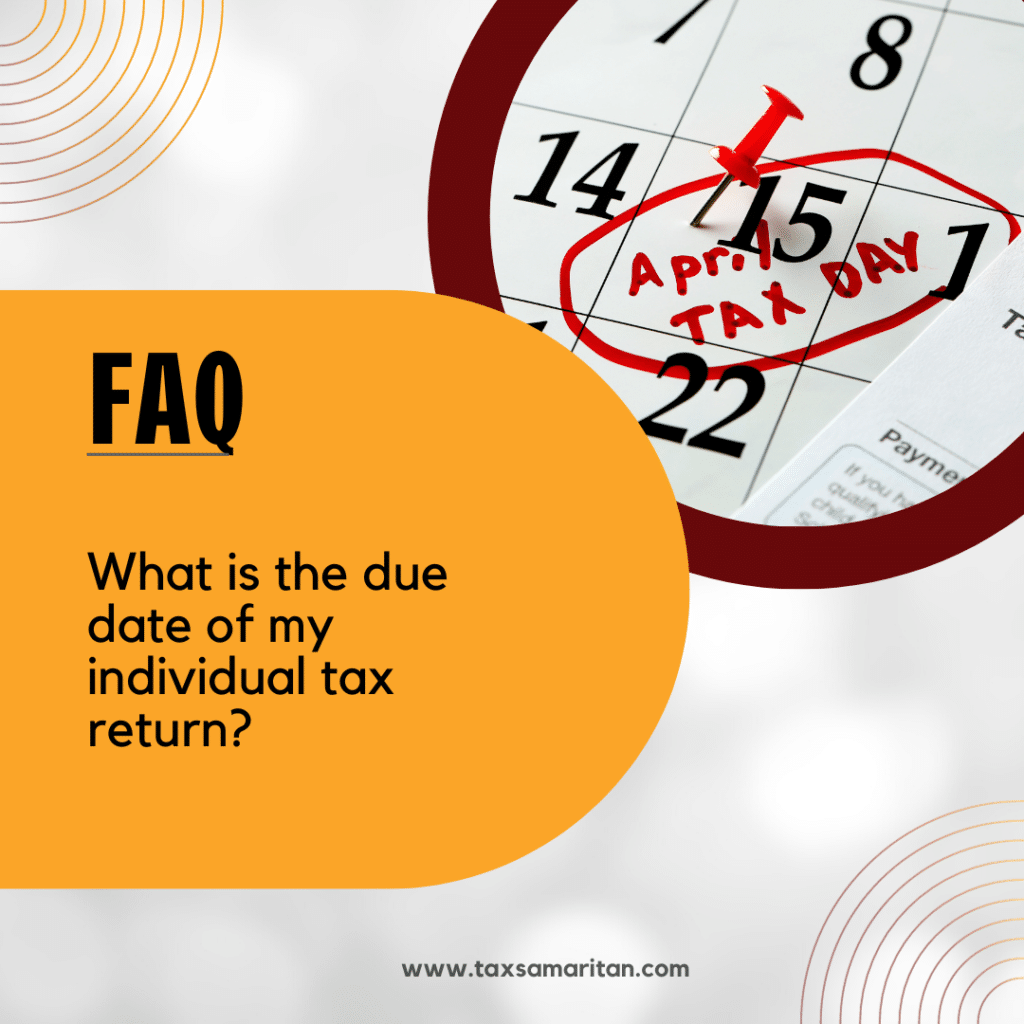
The due date for individual tax returns is April 15th. You may be allowed an automatic two-month extension of time to file your return and pay any federal income tax that is due. You will be allowed the extension if you are a U.S. citizen or resident alien and on the regular due date of your return:
- You are living outside of the United States and Puerto Rico and your main place of business or post of duty is outside the United States and Puerto Rico
- You are in military or naval service on duty outside the United States and Puerto Rico
Even if you are allowed an extension, you will have to pay interest on any tax not paid by the regular due date of your return. To use this automatic two-month extension, you must attach a statement to your return explaining which of the two situations listed earlier qualified you for the extension. Additional extensions may be filed to extend the due date to October 15th.
Can I e-file my federal tax return if I’m abroad?
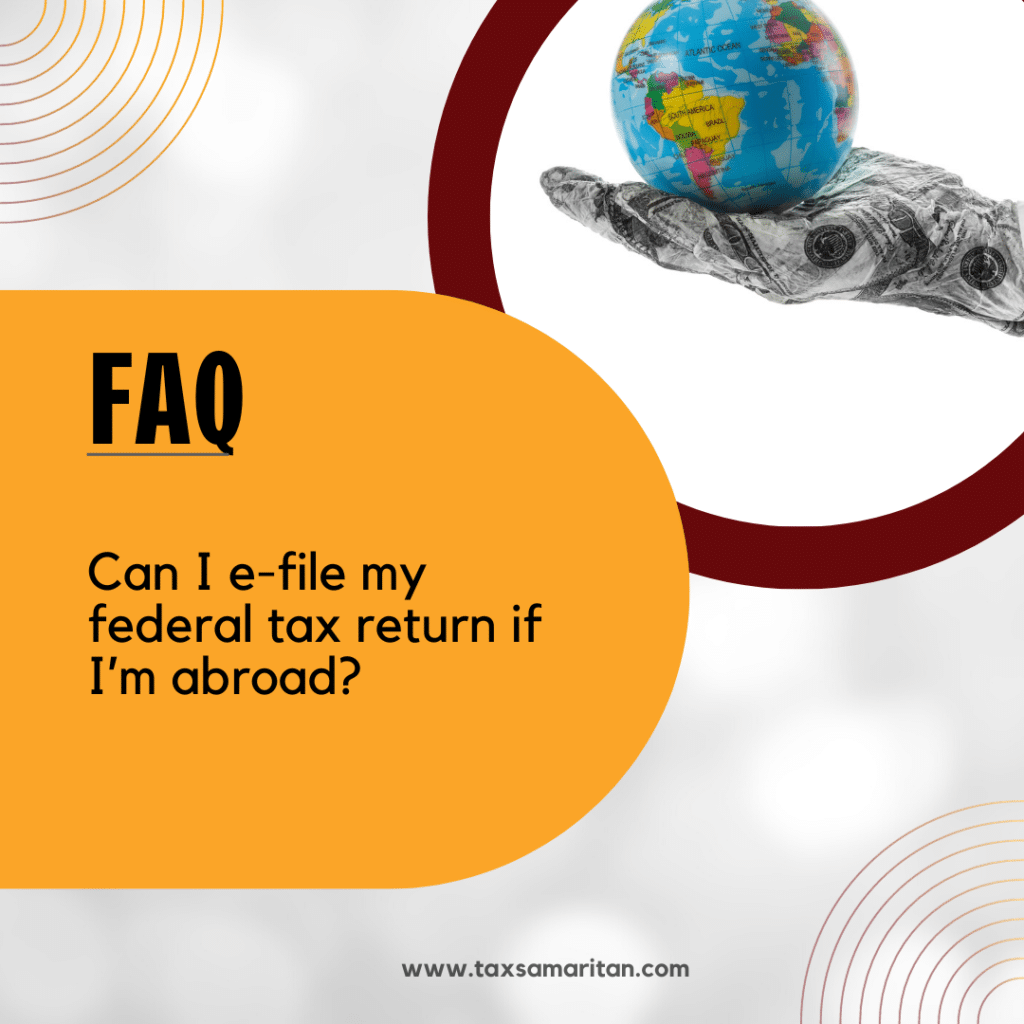
Many taxpayers abroad can e-file their tax return without any issues, but there are certain circumstances where a taxpayer will have to mail their return.
